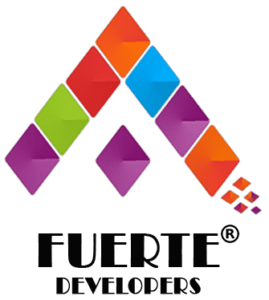Search is changing faster than ever before. For years, digital marketers built strategies around ranking on the first page of Google. Success was measured by clicks, impressions, and backlinks. But with the rise of AI-driven assistants like ChatGPT, Gemini, and Perplexity, the way users interact with information has dramatically shifted. Today, many people bypass traditional search engines and ask their questions directly to AI systems, expecting a clear, conversational answer instead of a list of blue links.
This shift signals the dawn of a new era of SEO—one where success depends on being recognized as the trusted authority that AI systems cite when providing answers. Businesses that adapt will dominate visibility, while those that stick to old strategies risk becoming invisible.
The Evolution from Search Engines to AI-Generated Responses
Traditional search engines give users a page of links. The responsibility to choose, compare, and interpret falls on the user. AI search, however, is fundamentally different. Instead of forcing people to click through multiple sources, AI consolidates knowledge and provides a single, direct response.
This evolution changes user behavior. Instead of exploring, users expect instant clarity. For businesses, this means the number of winners shrinks. Only a handful of authoritative sources shape AI’s responses, and being among them is more valuable than ranking in the top 10 of Google.
Why Traditional SEO Isn’t Enough Anymore
Old SEO practices still matter, but they are no longer sufficient. Keyword stuffing, backlink counts, and exact-match optimization are weak indicators in an AI-first world. AI systems are designed to understand meaning, context, and authority, not just keywords.
In other words, AI doesn’t reward superficial optimization. It seeks depth, trustworthiness, and accuracy. A website filled with shallow content may still get clicks on Google, but AI tools will skip it in favor of authoritative and well-structured sources.
Core Strategies to Optimize for AI-Driven SEO
1. Write in Natural, Conversational Language
AI is trained on natural human speech patterns. This means content should focus on answering real questions directly, not just repeating target keywords. Examples include:
- “What is AI SEO, and why does it matter in 2025?”
- “How do AI answers differ from traditional search results?”
The goal is to ensure your writing feels like a helpful conversation.
2. Demonstrate True Authority
AI trusts experts. To prove your expertise:
- Use data, studies, and credible references.
- Provide in-depth explanations instead of surface-level definitions.
- Showcase unique insights or original research.
The more evidence and thought leadership your content provides, the more AI will consider it reliable.
3. Structure Content for AI Extraction
AI systems prefer content that is easy to scan and organize. To achieve this:
- Use clear headings that match common queries.
- Add bullet points and numbered steps for quick reference.
- Summarize answers at the beginning or end of each section.
This makes it easier for AI to pull clean, usable responses.
4. Optimize for Featured Snippets and FAQs
AI often relies on Google snippets and schema data. To increase your chances:
- Add FAQ sections with direct Q&A formatting.
- Use schema markup to tag important details.
- Provide concise definitions within your content.
If your website already ranks in snippets, you have a higher chance of being chosen by AI tools.
5. Build Content Clusters and Topical Authority
AI doesn’t just evaluate one article—it looks at your overall authority on a subject. To strengthen your domain:
- Create multiple, interconnected articles on the same theme.
- Cover related subtopics in detail.
- Interlink them to create a strong topical ecosystem.
For example, if your main focus is AI SEO, publish supporting content on semantic search, conversational queries, voice optimization, and the future of search marketing.
The Differences Between Traditional SEO and AI SEO
The key difference lies in how success is defined. Traditional SEO rewards clicks and rankings. AI SEO rewards being the cited authority in AI-generated answers.
Instead of focusing on keyword frequency, you now need to optimize for context, clarity, and authority. Instead of aiming for ten blue links, the priority becomes brand inclusion inside AI responses.
This makes AI SEO less about gaming algorithms and more about genuine expertise and structured communication.
The Importance of Branding in AI Search
An overlooked aspect of AI SEO is brand trust. AI assistants are more likely to cite recognizable, reliable sources. To build brand strength:
- Ensure your brand is mentioned across multiple platforms.
- Collect positive reviews and testimonials.
- Publish original research, reports, and expert commentary.
- Stay consistent with branding and reputation management.
The stronger your brand presence, the more AI will view your business as a credible source.
The Future of SEO in the AI Era
Several clear trends are shaping the future of search:
- Voice-first optimization – With more people using Alexa, Siri, and Google Assistant, optimizing for spoken queries is crucial.
- Personalized results – AI will increasingly tailor answers to each user, requiring context-aware content strategies.
- Decline of traditional clicks – Businesses must focus on visibility within AI-generated summaries rather than expecting high organic traffic.
New metrics of success – Rankings will matter less, while AI answer inclusion, citations, and brand recognition will matter more.
How to Prepare Your Website for AI SEO Today
- Audit existing content – Remove keyword-stuffed posts and rewrite them in natural, human-friendly language.
- Add schema markup – Use FAQ, How-To, and Product schema to improve visibility.
- Publish long-form content – In-depth guides (1500–2000 words) are more likely to be cited by AI.
- Leverage AI tools for insights – Use them to discover semantic keywords and trending conversational queries.
- Prioritize authority-building – Contribute expert commentary, collaborate with industry leaders, and earn high-quality mentions.
Conclusion: Winning in the Age of AI Answers
The future of SEO no longer revolves around page one rankings. Instead, it revolves around being trusted enough for AI to cite your content directly. Businesses that adapt by focusing on semantic optimization, brand credibility, and structured authority-building will thrive, while those clinging to outdated strategies will fade.
AI is rewriting the playbook. To succeed, we must stop thinking like traditional SEOs and start thinking like the authoritative source AI assistants need. Those who embrace this change today will shape tomorrow’s digital visibility.
Follow Us | Our Services | Contact Us | Linkedin | Instagram


